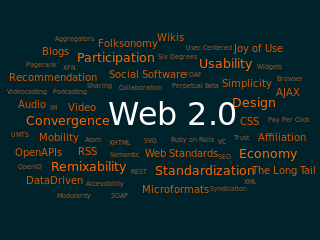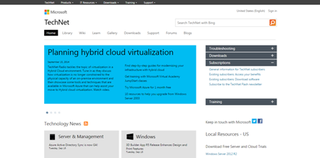Microsoft Developer Network (MSDN) was the division of Microsoft responsible for managing the firm's relationship with developers and testers, such as hardware developers interested in the operating system (OS), and software developers developing on the various OS platforms or using the API or scripting languages of Microsoft's applications. The relationship management was situated in assorted media: web sites, newsletters, developer conferences, trade media, blogs and DVD distribution.
Social software, also known as social apps or social platform includes communications and interactive tools that are often based on the Internet. Communication tools typically handle capturing, storing and presenting communication, usually written but increasingly including audio and video as well. Interactive tools handle mediated interactions between a pair or group of users. They focus on establishing and maintaining a connection among users, facilitating the mechanics of conversation and talk. Social software generally refers to software that makes collaborative behaviour, the organisation and moulding of communities, self-expression, social interaction and feedback possible for individuals. Another element of the existing definition of social software is that it allows for the structured mediation of opinion between people, in a centralized or self-regulating manner. The most improved area for social software is that Web 2.0 applications can all promote co-operation between people and the creation of online communities more than ever before. The opportunities offered by social software are instant connections and opportunities to learn. An additional defining feature of social software is that apart from interaction and collaboration, it aggregates the collective behaviour of its users, allowing not only crowds to learn from an individual but individuals to learn from the crowds as well. Hence, the interactions enabled by social software can be one-to-one, one-to-many, or many-to-many.

Delicious was a social bookmarking web service for storing, sharing, and discovering web bookmarks. The site was founded by Joshua Schachter and Peter Gadjokov in 2003 and acquired by Yahoo! in 2005. By the end of 2008, the service claimed more than 5.3 million users and 180 million unique bookmarked URLs. Yahoo sold Delicious to AVOS Systems in April 2011, and the site relaunched in a "back to beta" state on September 27 that year. In May 2014, AVOS sold the site to Science Inc. In January 2016 Delicious Media, a new alliance, reported it had assumed control of the service.
Furl was a free social bookmarking website that allowed members to store searchable copies of webpages and share them with others. Every member received 5 gigabytes of storage space. The site was founded by Mike Giles in 2003 and purchased by LookSmart in September 2004. Diigo bought it from LookSmart in exchange for equity.
Social bookmarking is an online service which allows users to add, annotate, edit, and share bookmarks of web documents. Many online bookmark management services have launched since 1996; Delicious, founded in 2003, popularized the terms "social bookmarking" and "tagging". Tagging is a significant feature of social bookmarking systems, allowing users to organize their bookmarks and develop shared vocabularies known as folksonomies.

In information systems, a tag is a keyword or term assigned to a piece of information. This kind of metadata helps describe an item and allows it to be found again by browsing or searching. Tags are generally chosen informally and personally by the item's creator or by its viewer, depending on the system, although they may also be chosen from a controlled vocabulary.
Connotea was a free online reference management service for scientists, researchers, and clinicians, created in December 2004 by Nature Publishing Group and discontinued in March 2013. It was one of a breed of social bookmarking tools, similar to CiteULike and del.icio.us, where users can save links to their favourite websites. ReadCube is a similar free service that offers storage, annotation and sharing tools specifically for scientific documents.
The XML Bookmark Exchange Language (XBEL), is an open XML standard for sharing Internet URIs, also known as bookmarks.
LibraryThing is a social cataloging web application for storing and sharing book catalogs and various types of book metadata. It is used by authors, individuals, libraries, and publishers.
Google Bookmarks was an online bookmarking service from Google, launched on October 10, 2005. It was an early cloud-based service that allowed users to bookmark webpages and add labels or notes. The service never became widely adopted by Google users.
Pageflakes was an Ajax-based startpage or personal web portal similar to Netvibes, My Yahoo!, Myhomepage, iGoogle, and Microsoft Live that operated from 2005 until January 2012. The site was organized into tabs, each tab containing user-selected modules called Flakes. Each Flake varied in content; information such as RSS/Atom feeds, Calendar, Notes, Web search, weather forecast, del.icio.us bookmarks, Flickr photos, social networking tools like Facebook, YouTube, Twitter, email and user-created modules. Pagecasts allowed users to share their pages publicly, allowing them to share a curated page of content that would be of interest to others .Pageflakes had 250,000 Flakes and over 130,000 Pagecasts.
Simpy was a web-based personal and social bookmarking service.

Microsoft TechNet was a Microsoft web portal and web service for IT professionals. It included a library containing documentation and technical resources for Microsoft products, a learning center providing online training, discussion forums, an evaluation center for downloading trialware, blogs for Microsoft employees and a wiki.
HCL Connections is a Web 2.0 enterprise social software application developed originally by IBM and acquired by HCL Technologies in July 2019. Connections is an enterprise-collaboration platform which aims to helps teams work more efficiently. Connections is part of HCL collaboration suite which also includes Notes / Domino, Sametime, Portal and Connections.
Collactive Inc. was an Israel-based privately held start-up company which marketed software designed to influence ratings on sites which allow users to rate articles or other items. Collactive launched publicly in May 2007, with US$2 million in startup funding from American venture firm Sequoia Capital.

Shelfari was a social cataloging website. Shelfari users built virtual bookshelves of the titles they owned or had read, and could rate, review, tag, and discuss their books. Users could also create groups that other members could join, create discussions, and talk about books, or other topics. Recommendations could be sent to friends on the site for what books to read.

Twine was an online social web service for information storage, authoring and discovery that existed from 2007 to 2010. It was created and run by Radar Networks. It was announced on October 19, 2007 and opened to the public on October 21, 2008. On March 11, 2010, Radar Networks was acquired by Evri Inc. along with Twine.com. On May 14, 2010, twine.com was shut down, becoming a redirect to evri.com.
tagConnect is an Intelink-based bookmark tool based loosely on del.icio.us. It combines traditional bookmarking with a community, so that users can see and search each other's bookmarks, comment on them, and organize them by flat, non-hierarchical categories called "tags."
Enterprise bookmarking is a method for Web 2.0 users to tag, organize, store, and search bookmarks of both web pages on the Internet and data resources stored in a distributed database or fileserver. This is done collectively and collaboratively in a process by which users add tag (metadata) and knowledge tags.
Folksonomy is a classification system in which end users apply public tags to online items, typically to make those items easier for themselves or others to find later. Over time, this can give rise to a classification system based on those tags and how often they are applied or searched for, in contrast to a taxonomic classification designed by the owners of the content and specified when it is published. This practice is also known as collaborative tagging, social classification, social indexing, and social tagging. Folksonomy was originally "the result of personal free tagging of information [...] for one's own retrieval", but online sharing and interaction expanded it into collaborative forms. Social tagging is the application of tags in an open online environment where the tags of other users are available to others. Collaborative tagging is tagging performed by a group of users. This type of folksonomy is commonly used in cooperative and collaborative projects such as research, content repositories, and social bookmarking.





